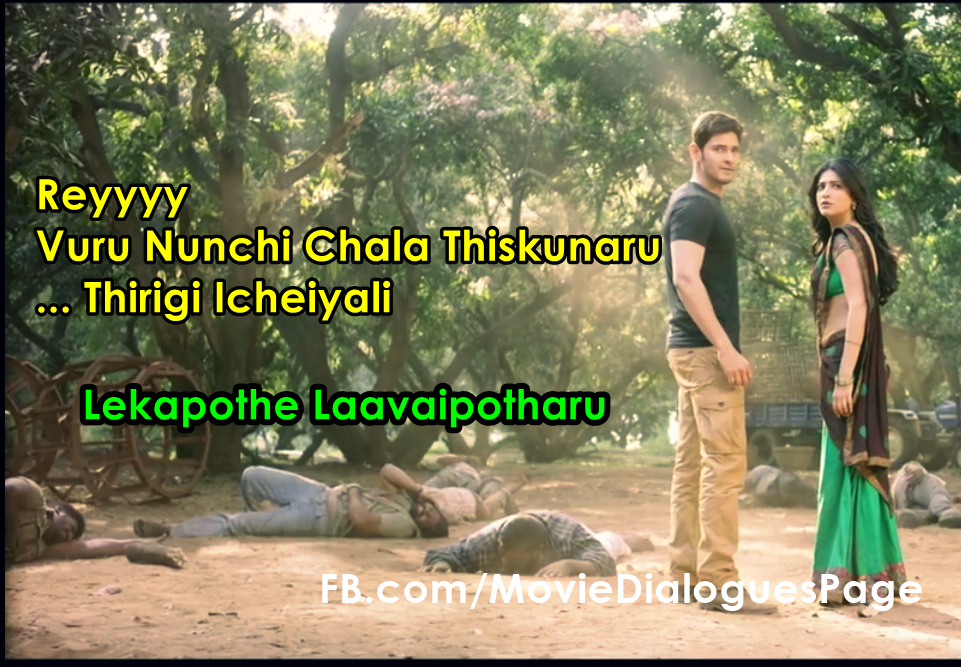
The safety and security of the village are mostly dependent on the moods of the subedar, and so he tacitly arranges to keep the subedar sated and out of his way. His principal goals are to negotiate concessions to the tax and to keep the subedar happy.

The mukhi means well but is generally weak and powerless before the subedar. They also arrange a steady supply of women for his pleasure. The villagers are compelled to keep him satisfied they regularly set up parties for him and his men, often at great expense to their meager means. The subedar is a haughty and cruel man, who exploits his power in every possible way. The subedar and his men routinely attack the village and raid the food, livestock and supplies. The mukhi's younger brother ( Mohan Gokhale) (who also loves a low-caste girl secretly) even asks the school-master the meaning of the word swaraj). The only literate person in the village is the schoolmaster ( Benjamin Gilani), who insists on educating the children, even girls (the mukhi's wife even enrolls her only daughter, only to be rebuked by the mukhi, who, like all the others believes that girls should not be sent to school). They are most stupefied by a gramophone the tyrant possesses.

We learn also that the villagers are mostly illiterate and ignorant of the outside world.

The villagers do their best to scratch out a living, of which the subedar invariably exacts a heavy tax. Subservient to him is the mukhi ( Suresh Oberoi) (village chieftain) and all the villagers. It turns out the subedar holds ultimate authority over the village. Sonbai is an intelligent, beautiful and strong woman. The subedar has an eye for women and soon spots Sonbai ( Smita Patil) on the riverbank. The plot begins with an arrogant subedar ( Naseeruddin Shah) (local tax collector in colonial India) and his henchmen rampaging through a village. Daulat hai, shouhrat hai, Izzat haiĥ - Tujhe aisi maut maaroonga ki teri papi aatma agale saat janam tak, kisi dosare sharir mein ghusane ke pehle kaamp uthegiĦ - 100 me se 80 baimaan, aimaan, phir bhi mera desh mhaan.ħ - Saala apne khud ke desh mein sui nahin bana sakte aur hamaare desh ko todane ka sapna dekhate hain.The film is set in Colonial India in the early 1940s.
MIRCHI DIALOGUES IN ENGLISH MOVIE
'Mirchi Shimle Di' song of movie Shimla Mirchi is out, watch video hereĤ - Bhagwan Ka Diya Sab kuch hai. jo parvat ki oonchai se girake bhi apne soondarata khone nahi deta, zameen ke tah se milake bhi apani astitv ko vyarth nahin hone deta Read a few selected dialogues on his birthday today.īirthday: This actor with angry attitude rules the heart of fans, Awarded with National Film Awardġ - 'Ye musalamaan ka khoon ye hindu ka khoon hai, batao is mein musalamaan ka kaun sa hindu ka konsa hai'Ģ - Waah! kalam vali bai waah! akhabaar ke dam par garibon ke jhompade bachaane chali hai? Waah! ek baat janati ho subah-subah tumhare isi akhabaar par bachche.ģ - Giro saalo giro, lekin giro to us jharane ki tarah.

He reigns in the hearts of fans not only because of his powerful characters in films but also because of dialogues. Due to this struggle, Nana's name has become one of the best actors today. After school, he used to go to the lime bhatti, 8 km away and paint posters of films so that he could get the bread for a time. Nana started working to raise the family at the age of 13. Today is the birthday of Nana Patekar, a versatile and well-known actor of the Hindi cinema.


 0 kommentar(er)
0 kommentar(er)
